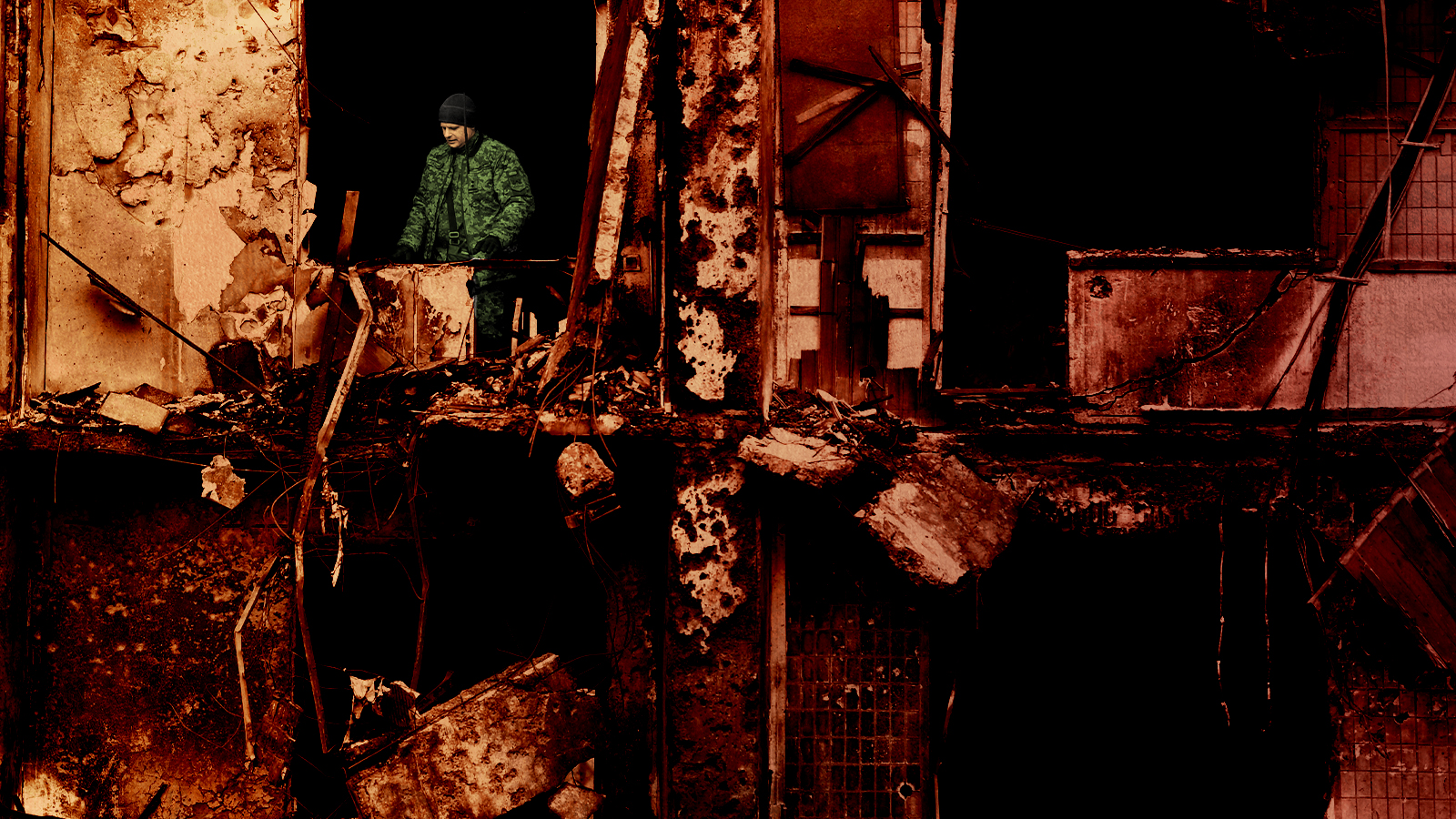Is the Russia-Ukraine war a 'clash of civilizations'?


A free daily email with the biggest news stories of the day – and the best features from TheWeek.com
You are now subscribed
Your newsletter sign-up was successful
The 1990s produced two big theories about the shape of the post-Cold War world. The first, Francis Fukuyama's "end of history" thesis, claimed that liberal democracy had come out on top in an age-old contest among competing holistic ideologies. From then on, liberalism would be the only game in town. The second, Samuel Huntington's "clash of civilizations" thesis, predicted that the world would soon break apart into competing and antagonistic civilizational blocs.
Russia's invasion of Ukraine has led some to suggest that history has restarted, which implies that Fukuyama got things wrong. But what about Huntington? Is the West's unified front against Russian aggression a vindication of his thesis? In a recent column, Ross Douthat of The New York Times says yes (with a caveat or two), while Matthew Yglesias takes the opposite position at his Substack, Slow Boring.
Douthat bases his case for Huntington's prescience on the breakup of the post-Cold War unipolar world led by the United States and its replacement by a more multipolar world in which "the specific divergences between the world's major powers have … followed, in general ways, the civilizational patterns Huntington sketched out." We have a U.S.-led Christian and post-Christian West (plus Japan) squaring off against Eastern-Orthodox-Christian Russia, with China, India, as well as most Middle Eastern, Latin American, and African countries, staying aloof from the conflict, though often for different reasons. For Douthat, that's strong confirmation of Huntington's thesis.
The Week
Escape your echo chamber. Get the facts behind the news, plus analysis from multiple perspectives.

Sign up for The Week's Free Newsletters
From our morning news briefing to a weekly Good News Newsletter, get the best of The Week delivered directly to your inbox.
From our morning news briefing to a weekly Good News Newsletter, get the best of The Week delivered directly to your inbox.
Yglesias, meanwhile, takes a more granular look at the clashes of the present world and finds considerable evidence that Huntington's assumptions are being falsified. Russia is actually a multicultural empire that's only 41 percent Eastern Orthodox, while Ukraine is majority Orthodox, with (mostly eastern rite) Catholics making up a significant portion (30 percent) of the population only in the western part of the country. That would seem to muddle the civilizational fissures Huntington highlighted.
In their place, Yglesias takes a more Fukuyaman line in pointing to the conflict's origins in Ukraine's desire to align with the European Union, for the sake of economic advancement, instead of the much poorer and less economically dynamic Russia. Pulling back to consider other regions of the world, Yglesias points to plenty of intra-civilizational disputes and geopolitical machinations that seem to have more to do with old-fashioned Great Power politics and the effort of smaller and weaker states to protect themselves by aligning with stronger ones.
That's more persuasive to me than a prediction of primarily civilizational clashes. Huntington was certainly right that the future would bring the return of geopolitical conflict. But the fault lines have more to do with the world reverting to its pre-1945 multipolar norm of competing Great Powers, spheres of influence, defensive alliances, and foreign policies rooted in a mixture of self-interest and the pursuit of national glory.
A free daily email with the biggest news stories of the day – and the best features from TheWeek.com
Damon Linker is a senior correspondent at TheWeek.com. He is also a former contributing editor at The New Republic and the author of The Theocons and The Religious Test.
-
 Political cartoons for February 15
Political cartoons for February 15Cartoons Sunday's political cartoons include political ventriloquism, Europe in the middle, and more
-
 The broken water companies failing England and Wales
The broken water companies failing England and WalesExplainer With rising bills, deteriorating river health and a lack of investment, regulators face an uphill battle to stabilise the industry
-
 A thrilling foodie city in northern Japan
A thrilling foodie city in northern JapanThe Week Recommends The food scene here is ‘unspoilt’ and ‘fun’
-
 Epstein files topple law CEO, roil UK government
Epstein files topple law CEO, roil UK governmentSpeed Read Peter Mandelson, Britain’s former ambassador to the US, is caught up in the scandal
-
 Iran and US prepare to meet after skirmishes
Iran and US prepare to meet after skirmishesSpeed Read The incident comes amid heightened tensions in the Middle East
-
 Israel retrieves final hostage’s body from Gaza
Israel retrieves final hostage’s body from GazaSpeed Read The 24-year-old police officer was killed during the initial Hamas attack
-
 China’s Xi targets top general in growing purge
China’s Xi targets top general in growing purgeSpeed Read Zhang Youxia is being investigated over ‘grave violations’ of the law
-
 Ukraine, US and Russia: do rare trilateral talks mean peace is possible?
Ukraine, US and Russia: do rare trilateral talks mean peace is possible?Rush to meet signals potential agreement but scepticism of Russian motives remain
-
 Panama and Canada are negotiating over a crucial copper mine
Panama and Canada are negotiating over a crucial copper mineIn the Spotlight Panama is set to make a final decision on the mine this summer
-
 The rise of the spymaster: a ‘tectonic shift’ in Ukraine’s politics
The rise of the spymaster: a ‘tectonic shift’ in Ukraine’s politicsIn the Spotlight President Zelenskyy’s new chief of staff, former head of military intelligence Kyrylo Budanov, is widely viewed as a potential successor
-
 Why Greenland’s natural resources are nearly impossible to mine
Why Greenland’s natural resources are nearly impossible to mineThe Explainer The country’s natural landscape makes the task extremely difficult
